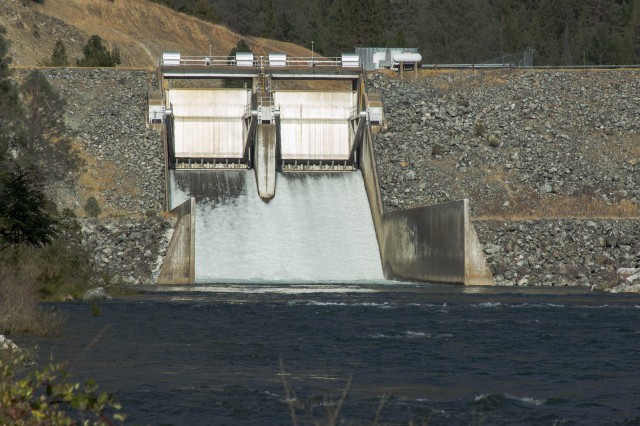
A federal judge has rejected a bid by two of the biggest irrigation districts in the San Joaquin Valley to stop emergency water releases intended to help chinook salmon migrating up the Klamath and Trinity rivers in Northern California.
U.S. District Judge Lawrence J. O'Neill in Fresno on Wednesday denied the temporary restraining order and preliminary injunction sought by Westlands Water District and the San Luis & Delta-Mendota Water Authority. The districts had argued the U.S. Bureau of Reclamation lacks the authority to make the releases and that the water flowing downriver to improve conditions for salmon means less will be available for Central Valley farmers.
The judge ruled that the potential harm to salmon from drought conditions, which have reduced flows in the Klamath River and raised the chances for disease, outweighs the potential harm to farm operations.
The U.S. Bureau of Reclamation ordered the emergency releases last week from reservoirs on the Trinity River, the Klamath's main tributary. The agency said it acted after determining that low flows and higher than normal temperatures on the Klamath could be ripe for an outbreak of a parasite and illness that killed more than 30,000 chinook in 2002.
The releases are scheduled to continue through mid-September and are expected to total about 25,000 to 30,000 acre-feet (roughly enough water to supply about 50,000 to 60,000 California households for a year).

